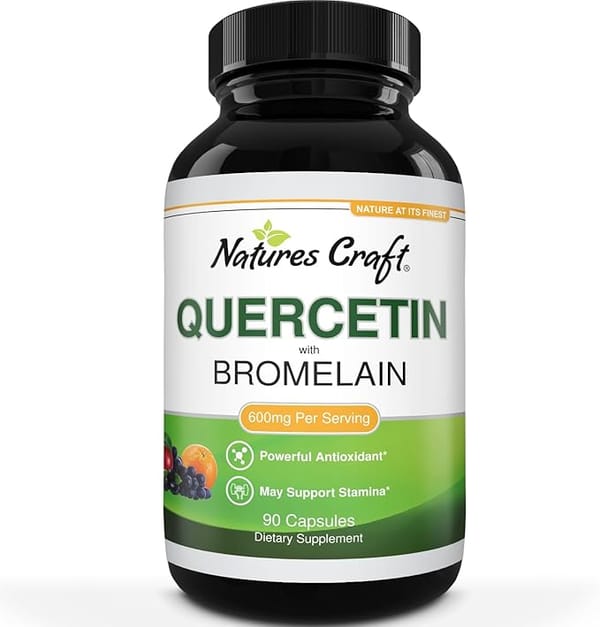Lion's mane mushroom, traditionally used in Chinese medicine, has gained attention for its potential brain health benefits. Preliminary studies suggest that compounds in lion's mane, such as hericenones and erinacines, may stimulate the growth of brain cells and protect against cognitive decline, but more research is needed to confirm these effects in humans.
Mechanisms of Neuroprotection
Neuroprotection refers to the preservation of neuronal structure and function in the face of insults that can lead to neurodegeneration.[1] Common mechanisms of neuronal injury include decreased oxygen and glucose delivery to the brain, energy failure, oxidative stress, mitochondrial dysfunction, excitotoxicity, inflammation, iron accumulation, and protein aggregation.[1] Neuroprotective strategies often target oxidative stress and excitotoxicity, as these can trigger neuron cell death synergistically.[1]
Endogenous neuroprotective mechanisms, also known as cellular resilience, allow neurons to adapt to stress and promote their own survival.[2] These include the unfolded protein response (UPR), autophagy, the heat-shock response, the ubiquitin-proteasome system, chaperone systems, ER-associated degradation, and antioxidant defenses.[2] Boosting these innate protective pathways through pharmacological treatments has been shown to help motor neurons survive in various pro-death scenarios.[2]
At the molecular level, neuroprotective agents like the polyphenols mangiferin and morin act through multiple mechanisms. They reduce reactive oxygen species formation, activate enzymatic antioxidant systems, restore mitochondrial membrane potential, inhibit glutamate-induced calpain activation, normalize levels of pro-survival kinases like Akt and Erk1/2, prevent pro-apoptotic Bax translocation and AIF release from mitochondria, and regulate NF-κB signaling.[3] Together, these effects substantially reduce excitotoxic apoptotic neuronal death.[3]
Ischemic preconditioning, a brief sublethal ischemic episode, induces neuroprotective adaptations that increase the brain's tolerance to subsequent more severe ischemia.[5] The mechanisms involve NMDA and adenosine receptor activation, intracellular kinase signaling, upregulation of anti-apoptotic Bcl-2 and heat shock proteins, and modulation of protein degradation pathways.[5] Understanding these endogenous protective responses could lead to new preventive and therapeutic strategies for stroke and neurodegenerative diseases.[5]
Does Lion's Mane Work?
While some early studies suggest lion's mane mushroom may boost brain health, the evidence for its effectiveness is still limited. A few animal studies have found that compounds in lion's mane, like hericenones and erinacines, can stimulate the growth of brain cells and improve memory in mice.[1][4] However, it's unclear if these benefits translate to humans.
A small pilot study in healthy young adults showed that lion's mane extract improved reaction time after a single dose and reduced stress after 28 days.[2][3] The researchers noted this was the first study to find cognitive benefits in young, healthy people, but cautioned that more research is needed to draw firm conclusions.[2]
Experts express cautious optimism about the potential of lion's mane for brain health. Dr. Clifford Segil, a neurologist, stated "It's very hard to extrapolate whether a study in which Korean mice were fed lion's mane mushroom and then explored a new object faster has any clinical application to humans."[1] He also noted that in his experience, nothing has been definitively shown to regrow nerves in the central nervous system.[1]
While these early findings are promising, larger and more robust human trials are necessary to determine if lion's mane is truly effective for improving brain function or preventing cognitive decline. The optimal dosage and long-term safety also need to be established before lion's mane can be widely recommended as a brain health supplement. More evidence is required to fully understand its effects and potential as a natural nootropic.
Impact on Cognitive Decline in Older Adults
Cognitive decline is a common concern among older adults. It refers to problems with thinking, memory, concentration, and other brain functions that go beyond the typical age-related changes.[1] Certain lifestyle factors like diabetes, smoking, high blood pressure, high cholesterol, being overweight, depression, lack of physical exercise, low education level, and lack of mental stimulation can increase the risk of cognitive decline in older age.[1]
Staying socially active, continuing to learn new things, exercising regularly, and eating a healthy diet may help prevent or slow cognitive decline.[1][2] Engaging in cognitively stimulating activities like reading, playing games, making music, and being creative shows promise for improving memory and well-being in older adults, although more research is needed to confirm lasting cognitive benefits.[2]
It's important for older adults experiencing increasing problems with memory, decision-making, or accomplishing familiar tasks to see their doctor, as these may be signs of mild cognitive impairment (MCI) or early dementia rather than normal aging.[1][3] More than 50% of patients with dementia have not received a clinical cognitive evaluation, and physicians are often unaware of cognitive impairment in over 40% of their impaired patients.[3] Underdiagnosis of cognitive decline can hinder treatment of underlying conditions and pose safety issues.[3]
By 2050, the number of Americans age 65 and older is projected to grow to 88 million.[4] The increasing aging population makes age-related cognitive decline a growing public health issue.[4] Acting quickly to make needed changes to systems and environments can help mitigate the future impacts of subjective cognitive decline and dementia on older adults, their families, and public health.[4] Planning for future needs as cognitive function declines can reduce stress in a person's advancing years.[5]
Potential Benefits for Younger Adults
While most research on lion's mane mushroom has focused on its potential to prevent age-related cognitive decline, some recent studies suggest it may offer benefits for younger adults as well. A 2023 pilot study found that supplementation with lion's mane extract improved reaction time and reduced subjective stress in healthy adults aged 18-45.[1][3]
One hour after taking a single 1.8 gram dose of lion's mane extract, subjects demonstrated quicker performance on the Stroop task, a test of reaction time and processing speed.[1] After 28 days of daily supplementation, they reported a trend toward lower stress levels compared to the placebo group.[1] The researchers noted this was the first study to show cognitive benefits of lion's mane in young, healthy people.[2]
These findings suggest lion's mane could potentially help younger adults seeking a mental edge for work, school, or gaming.[3] The mushroom's ability to cross the blood-brain barrier and stimulate nerve growth factors may explain its effects on cognition and stress resilience.[1][2] However, the authors caution that more research is needed to confirm these preliminary results.[1][2]
Other studies have looked at fortifying foods like pasta with lion's mane to boost the bioactive compounds. Adding small amounts of lion's mane powder to pasta increased levels of vanillin, a compound with neuroprotective and antioxidant properties.[2] This suggests lion's mane could be incorporated into common foods to provide brain health benefits.
While these early findings are intriguing, experts emphasize the need for larger, well-controlled human trials to validate the cognitive effects of lion's mane in younger populations.[4][5] Optimal dosage, safety, and the most bioavailable forms of the mushroom also need to be determined. For now, the evidence for lion's mane as a nootropic supplement for young adults remains limited but promising.














Member discussion